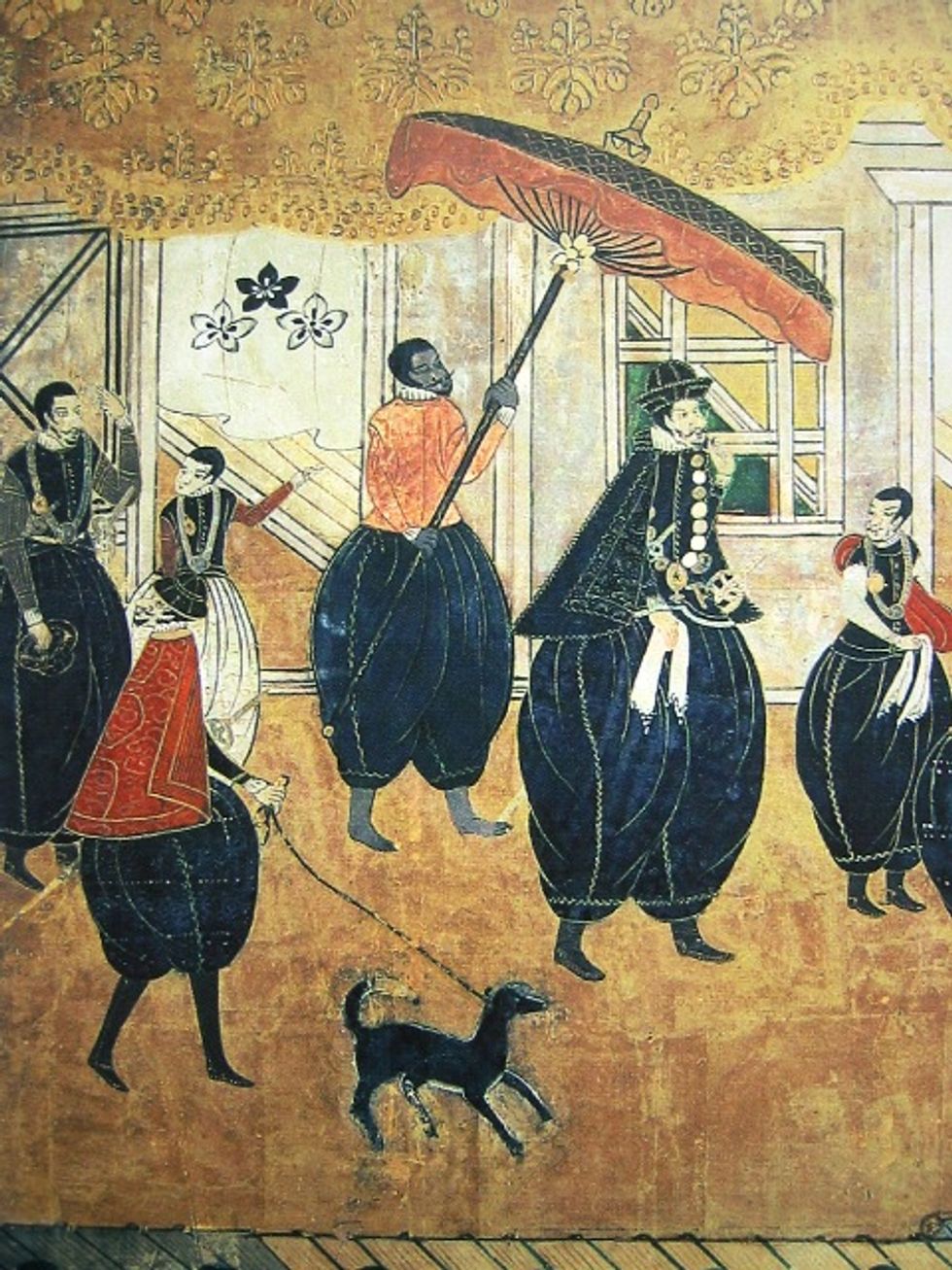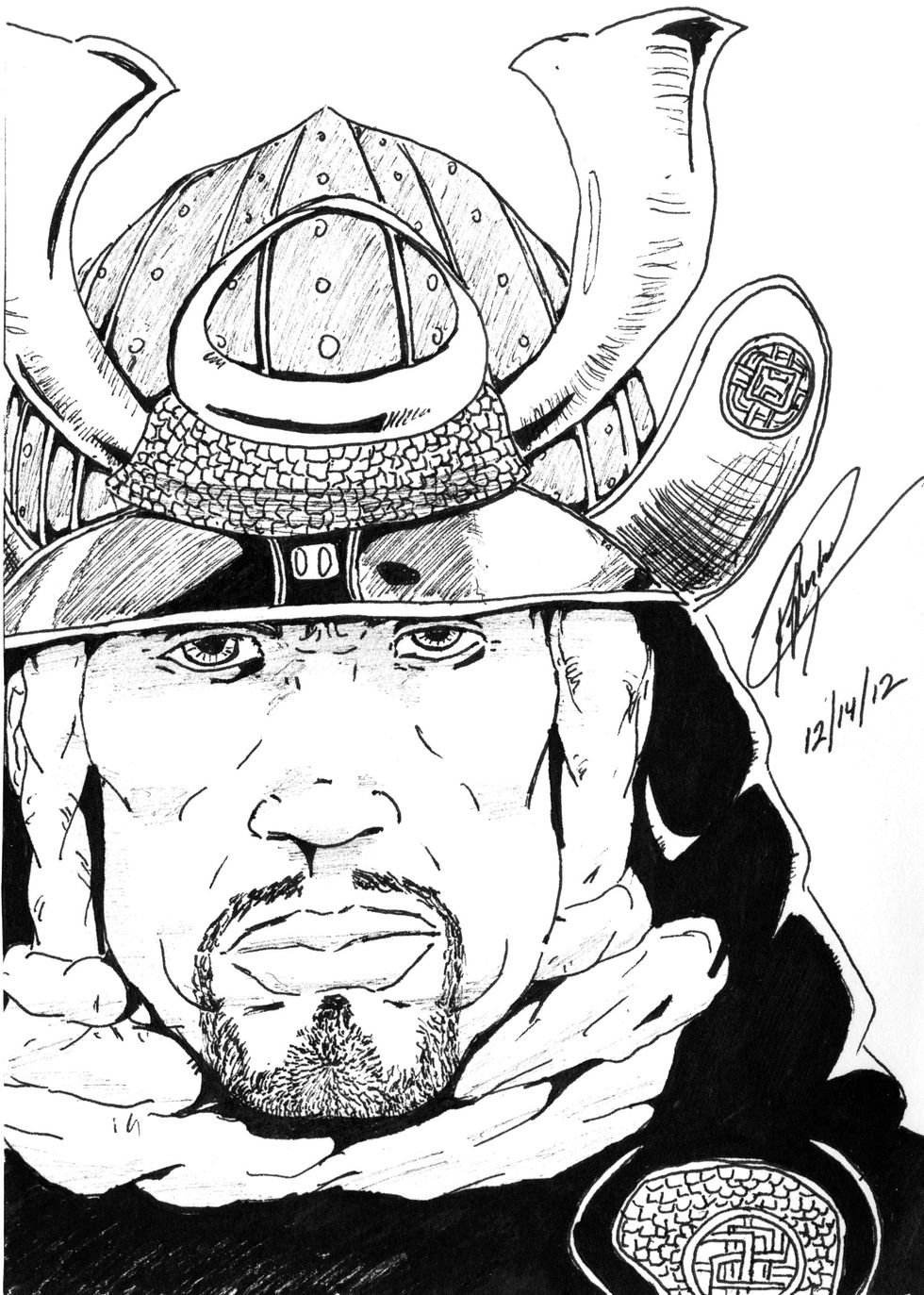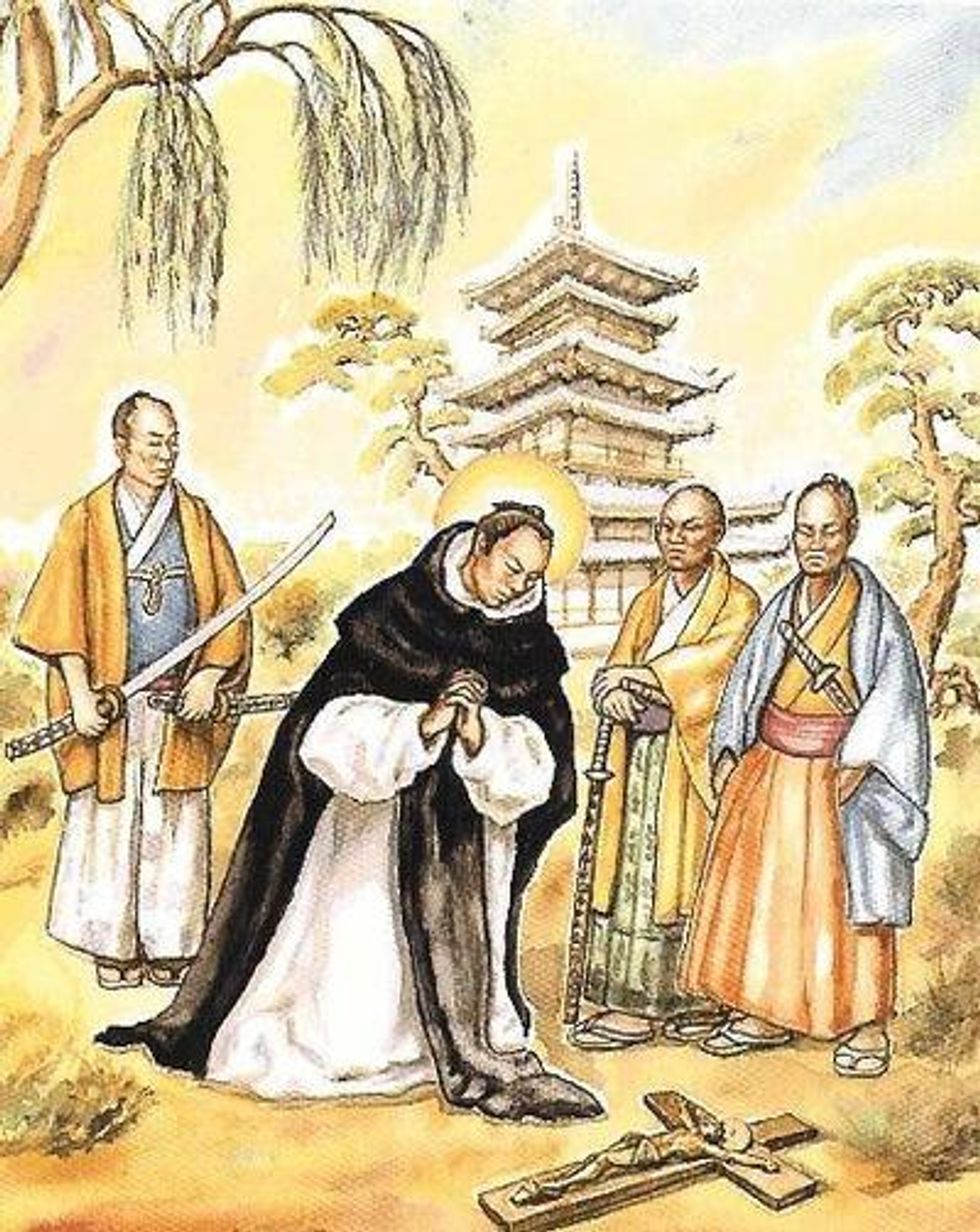In this multicultural and international world, it's strange to think about how isolated entire nations used to be a hundred years ago. The average person never encountered more than a few hundred people in their entire lives, and every one of those were people with the same skin color, the same language and the same culture and history.
Feudal Japan was especially isolated, mostly because it happened to be surrounded by hundreds and hundreds of miles of saltwater. Pretty much everyone on the main islands of Japan looked and behaved more or less exactly the same: like Japanese people. The most foreign culture they had ever come into contact with was China, which, by and large, wasn't exactly exotic.
In the year 1543, that changed drastically: European traders (mostly Portuguese, Italian, and Dutch) started to make regular visits to Japan, and even established Jesuit missions in the south of the islands. They brought lots of new and exciting things: guns, strange art, exotic spices, and also black people.
In 1543, the first Europeans arrived in Japan, and were generally accepted. In 1579, the first black man arrived in Japan, and everybody flipped.
The name he was born with was never recorded by history, but we do know he arrived in Japan as the slave of an Italian Jesuit priest named Alessandro Valignano. We also know that his appearance caused quite the stir. According to at least one source, peasants nearly trampled each other to death trying to get close to inspect this strange dark-skinned stranger, and so many people crammed themselves into the Christian temple that the priests worried it would collapse.
Word spread quickly, and the powerful warlord Oda Nobunaga heard about this bizarre black man. He summoned the slave to his court, and couldn't believe his eyes. Suspicious, he forced the young man to strip to his undergarments and scrub himself with a brush to prove his skin hadn't simply been covered in ink.
Oda Nobunaga was impressed not only with the slave's strange dark skin, but also his size and strength. Nobunaga himself was considered a tall man, but this slave was said to have towered over him, and Nobunaga himself said that his strength was like "that of ten men". He was so impressed by these fine qualities, that he at some point freed the young man, and offered him a position in the Oda household not as a slave, but as a free retainer.
The slave presumably jumped at the chance to not be a slave (as most people probably would), and entered into the service of one of the most powerful and influential men in Japanese history. Nobunaga renamed him "Yasuke", and although nobody is sure why, this is the name that the first black man in Japan is remembered by.
At the time, Japan was two centuries deep into a brutal civil war, but Yasuke accompanied Nobunaga for three years both in normal travels and in war expeditions, becoming a close retainer. People who met with the Oda household observed that Yasuke was held in high favor by the warlord, and some speculated that Yasuke might even be raised to a lordship when (if) the war ended. This never happened, though at some time Yasuke was raised to the rank of samurai, which comes with all sorts of special rights and a pretty big salary.
That's right. Yasuke wasn't just the first black person ever to set foot in Japan, he was also the first non-Japanese samurai, and the first and only black samurai. If you think that so far this sounds like the plot to an excellent movie, just wait. It gets better.
In 1582, Oda Nobunaga was betrayed by one of his generals, and forced to commit seppuku (ritualistic suicide), Yasuke wasn't captured during the coup- he managed to escape with Nobunaga's eldest son, and the two of them went on a wild adventure through the wilderness, trying to make it to a fortress still loyal to the Oda clan.
While this has all the signs of being the best action movie to ever exist, real life isn't quite as exciting. Yasuke and Nobunaga's son were captured without a fight, and the boy was forced to commit suicide just as his father had done. The other Japanese didn't have the same respect for Yasuke that Nobunaga had, and instead of keeping him hostage or giving him a warrior's death, they brought the first and only black samurai back to where his journey had begun: the Jesuit temple.
After that, Yasuke just... disappeared. There are no records, either Japanese or European, that describe what happened to him after the treasonous general dropped him off with the Christian monks.
The most likely version of events is that he was sold back into slavery by the Dutch, probably sent to one of their Southeast Asian territories, or even to Africa. He probably spent the rest of his days as a personal manservant to a European trader, or as a humble worker on some plantation or manor, telling his fellow slaves of the brief few years he spent as a feudal warrior in a faraway land. Most likely, nobody ever believed him, and he died and was buried and forgotten.
However, I like to think he spent his last days as a ronin, an unattached samurai, wandering the war-torn lands of feudal Japan. Maybe he even avenged the Oda clan somehow, and died an unsung hero.
It'd make for a better story, at least.





















